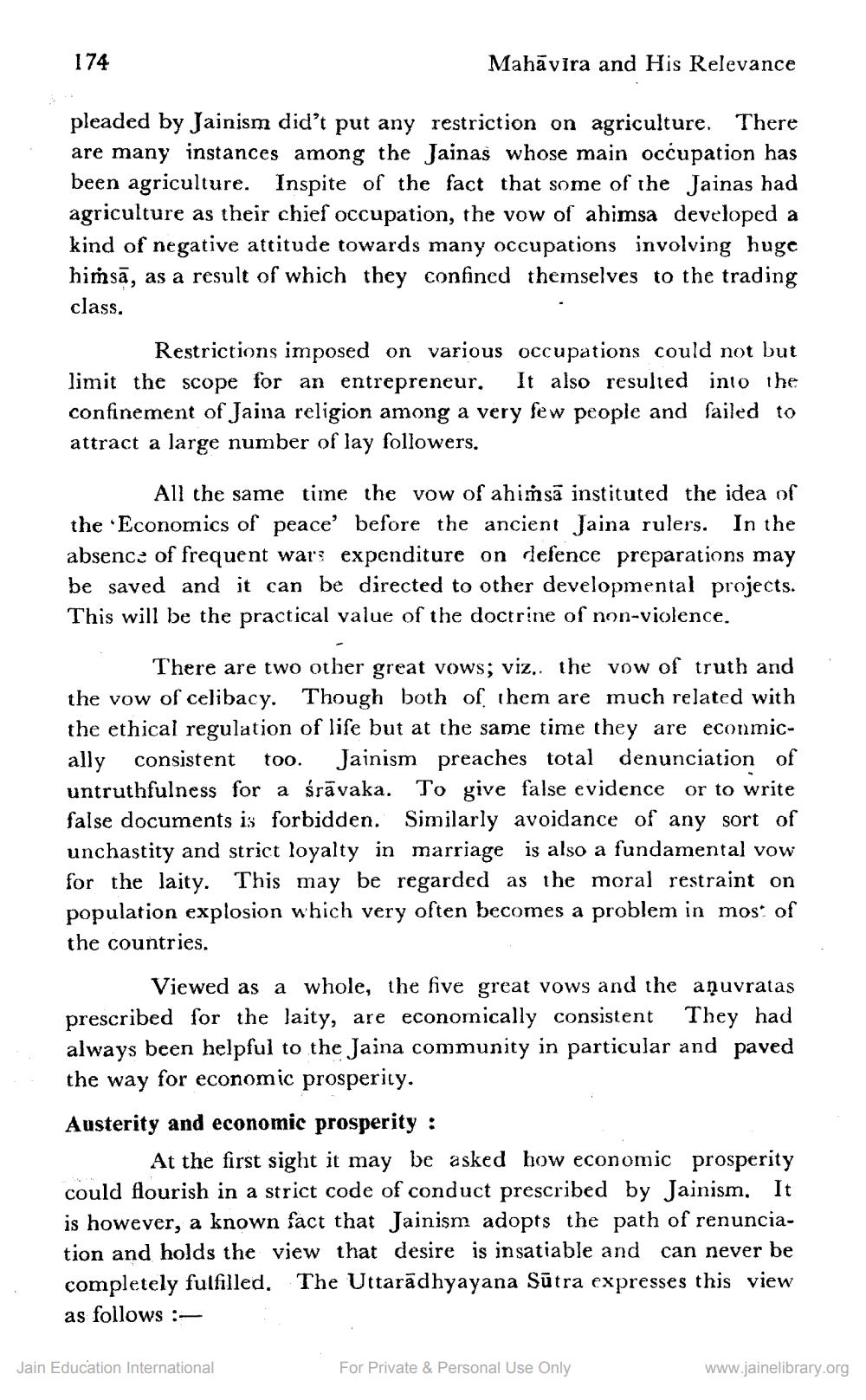________________
174
Mahāvira and His Relevance
pleaded by Jainism did't put any restriction on agriculture. There are many instances among the Jainas whose main occupation has been agriculture. Inspite of the fact that some of the Jainas had agriculture as their chief occupation, the vow of ahimsa developed a kind of negative attitude towards many occupations involving huge hiṁsā, as a result of which they confined themselves to the trading class.
Restrictions imposed on various occupations could not but limit the scope for an entrepreneur. It also resulted into the confinement of Jaina religion among a very few people and failed to attract a large number of lay followers.
All the same time the vow of ahiṁsā instituted the idea of the Economics of peace before the ancient Jaina rulers. In the absence of frequent wars expenditure on defence preparations may be saved and it can be directed to other developmental projects. This will be the practical value of the doctrine of non-violence.
There are two other great vows; viz.. the vow of truth and the vow of celibacy. Though both of them are much related with the ethical regulation of life but at the same time they are econmically consistent too. Jainism preaches total denunciation of untruthfulness for a śrāvaka. To give false evidence or to write false documents is forbidden. Similarly avoidance of any sort of unchastity and strict loyalty in marriage is also a fundamental vow for the laity. This may be regarded as the moral restraint on population explosion which very often becomes a problem in mos of the countries.
Viewed as a whole, the five great vows and the aņuvratas prescribed for the Jaity, are economically consistent They had always been helpful to the Jaina community in particular and paved the way for economic prosperity. Austerity and economic prosperity :
At the first sight it may be asked how economic prosperity could flourish in a strict code of conduct prescribed by Jainism. It is however, a known fact that Jainism adopts the path of renunciation and holds the view that desire is insatiable and can never be completely fulfilled. The Uttarādhyayana Sūtra expresses this view as follows:
Jain Education International
For Private & Personal Use Only
www.jainelibrary.org




